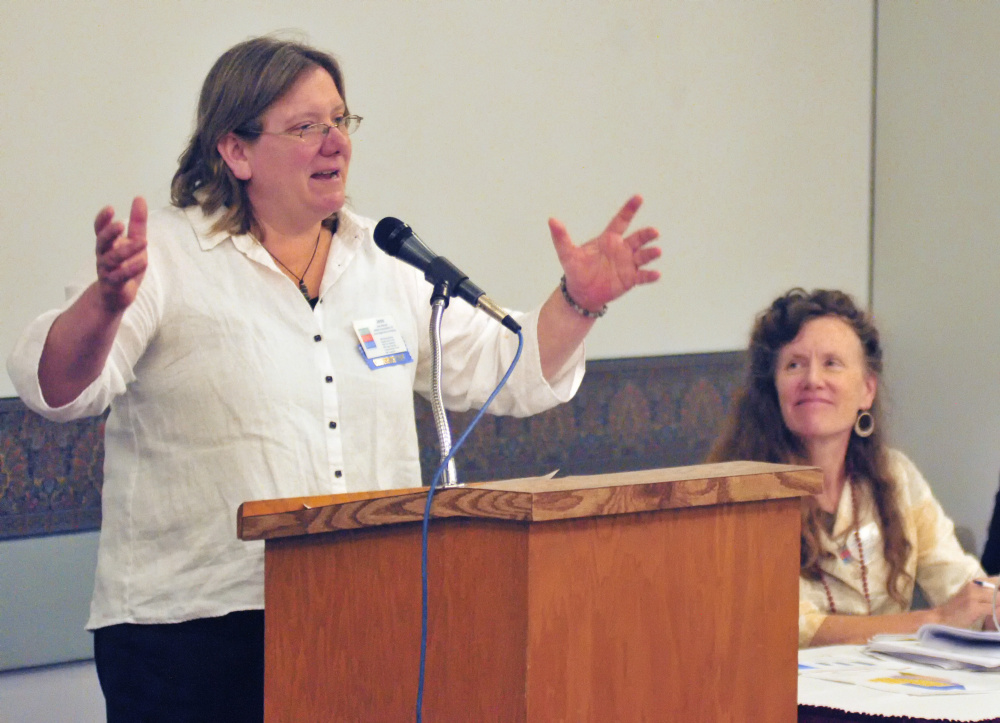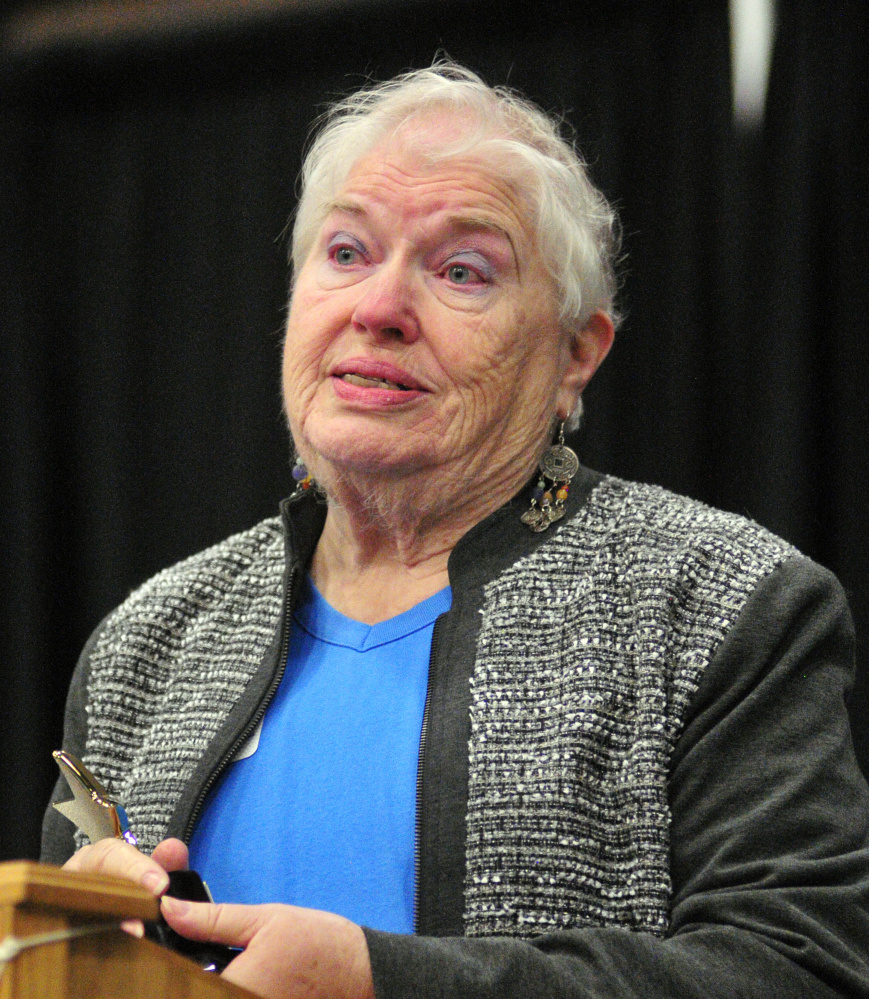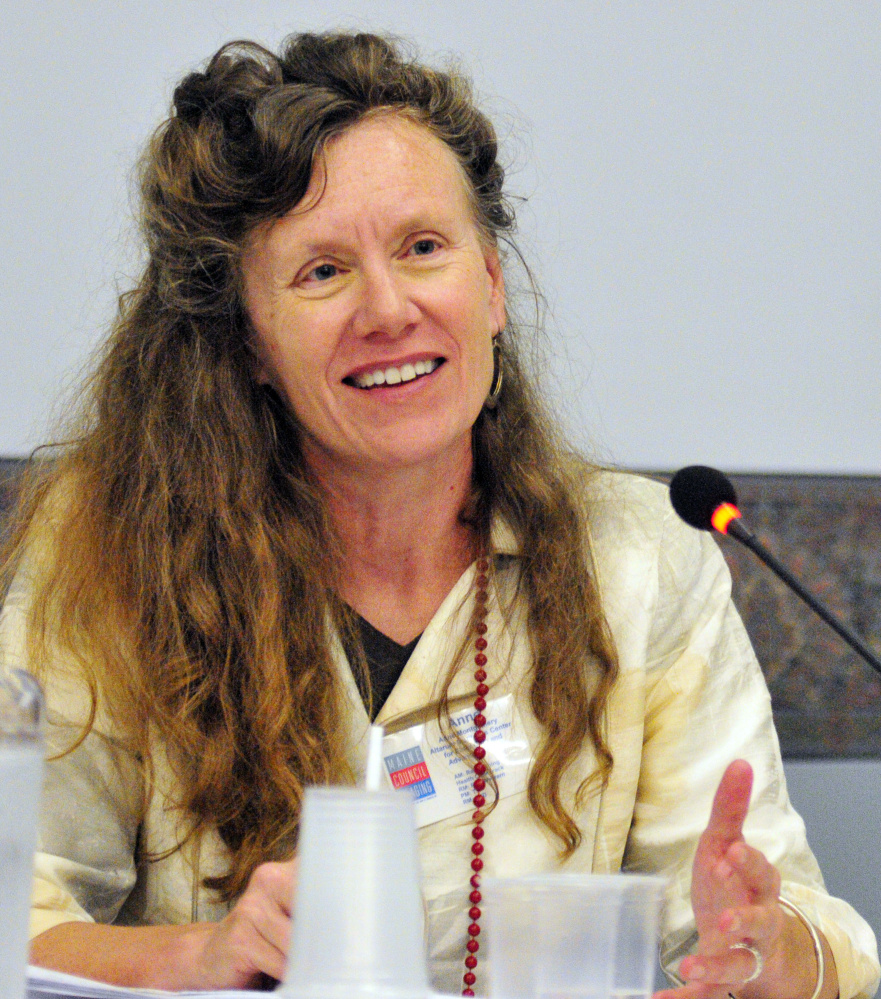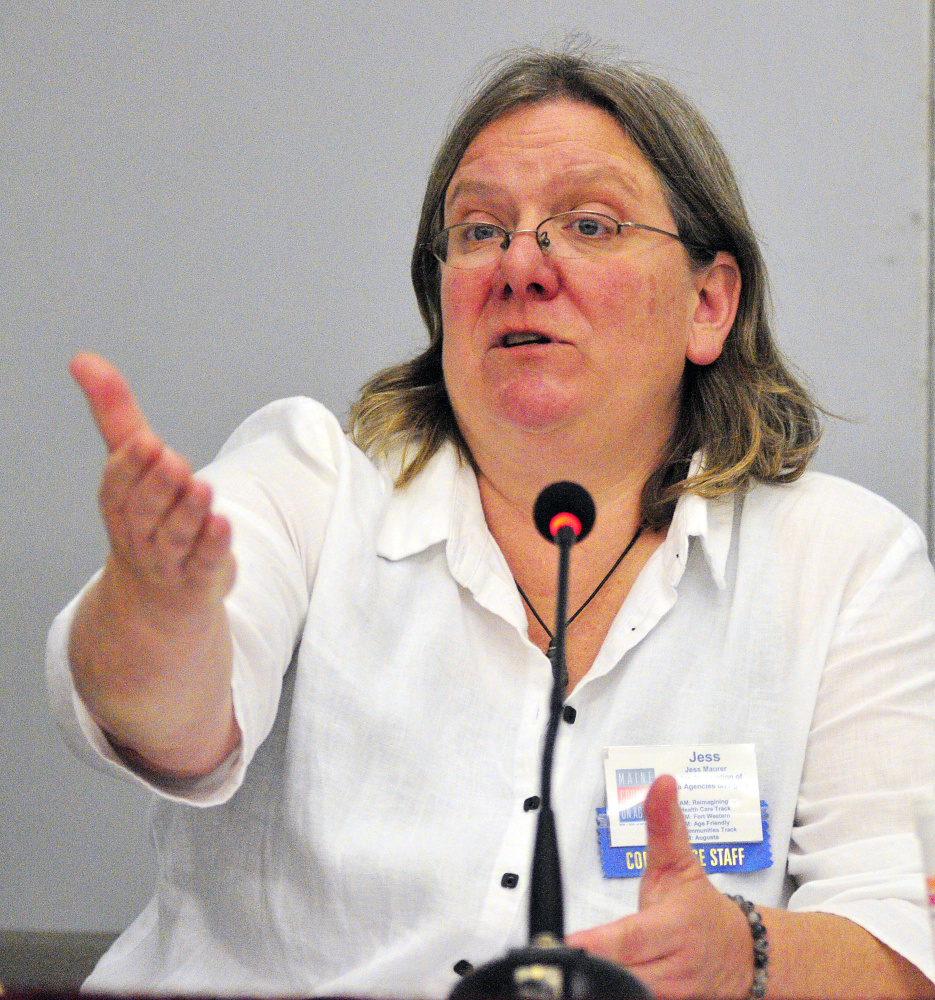AUGUSTA — Nearly 500 people interested in strategies to improve the health and well-being of older adults attended the Maine Summit on Aging at the Augusta Civic Center on Wednesday.
The third annual event was intentionally designed to be a conversation that leads to action, especially when it comes to state policy, according to Jess Maurer, the co-chairwoman of the Maine Council on Aging.
However, the state’s Office of Aging and Disability Services was unable to attend the event because of staffing challenges. Maurer said it was unfortunate and sad that they weren’t able to participate in the conversation. Gary Walcott, the director of the state agency, did not return a request for comment Wednesday afternoon.
“We have a number of challenges to help people age well in their homes and communities, and this event is really a conversation that helps drive policy,” Maurer said. “We bring people together to highlight some of the things that are working and talk about some of the challenges and the road forward.”
Maurer, who is the executive director of the Maine Association of Area Agencies on Aging, said one of the things that is working is the collaboration between community-based organizations and the health care industry.
GETTING THE WORD OUT
In Kennebec County, Spectrum Generations is working with MaineGeneral to do home assessments and to provide meals to people engaged in care transitions. Maurer said they are having great success in that area.
However, with an aging population comes many challenges, and one of the biggest, according to Maurer, is the way the nation’s health care system operates.
“Our entire health care system is predicated on helping people when they are sick, but the transformation is to try and avoid sickness and be preventative,” Maurer said.
Sometimes older adults are too independent and don’t want to ask for help, or they don’t know the resources available to them. Maurer said the result is a lot of older adults struggling and suffering unnecessarily because there are community-based support organizations out there that would improve their health.
Maurer said it turns into a “vicious circle” because the individual doesn’t know to seek out support, so they end up in the hospital with big emotional and physical costs. “Then they go home and the same thing happens because nobody has connected them to the available resources,” she said.
Finding out how to best disseminate the information to those in need is something the council and its partners are starting to figure out, Maurer said. There is a communications system and strategy that uses weekly newspapers, word of mouth, social groups and town newsletters.
“It’s understanding that we’re in a transition of information,” she said. “We have to get it out in paper form, and we have to get it out on the radio and newspaper.”
Last week, a 94-year-old woman called Maurer responding to an article in the Harpswell Anchor who just wanted Maurer to know “she was here.” She said she still drove but shouldn’t be, so Maurer explained to her about the volunteer transportation network in Harpswell.
“She didn’t know about (the service), so she needed a trusted source in her community to tell her about it,” Maurer said. “It why we say it’s going to take a village of people who know what resources there are.”
HEALTH AND HAPPINESS
The day-long event featured a morning keynote by Anne Montgomery, the deputy director of the Center for Elder Care and Advanced Illness at Altarum Institute in Portland. Montgomery spoke about the need to create integrated community-based systems of care that address both the medical needs and social determinants of health of older adults.
During the day’s 22 work sessions, more than 70 experts and community leaders shared replicable models and strategies that are working to keep older adults happy and living well at home.
“We’re trying to make sure people have access to the information they need,” Maurer said.
The breakout sessions included discussions on the transportation needs of seniors, the future of housing in Maine, dementia care, and hunger and poverty in older adults.
During a noon luncheon, the council gave several awards to Mainers who have made a difference for seniors. Rena Heath, of Hallowell, received the 2016 Volunteer Hero to Maine Seniors Award; Steve Farnham, executive director of the Aroostock Area Agency on Aging, received the 2016 Lifetime of Service to Maine Seniors Award; and Meg Haskell, a Bangor Daily News reporter who writes about Maine’s elderly population, received the 2016 Award for Journalistic Excellence on Aging.
Heath spent nearly 24 years as a receptionist for the Office of the Attorney General and said she just believes in giving and helping others.
“I knew I couldn’t write very many $100 checks, but I could certainly ask 100 people for a dollar,” Heath said.
As Maine’s population continues to age, events like this one will grow in importance, Heath said. “You meet people and you hear what they’re doing in other parts of the state.”
Jason Pafundi — 621-5663
Twitter: @jasonpafundiKJ
Send questions/comments to the editors.







Comments are no longer available on this story